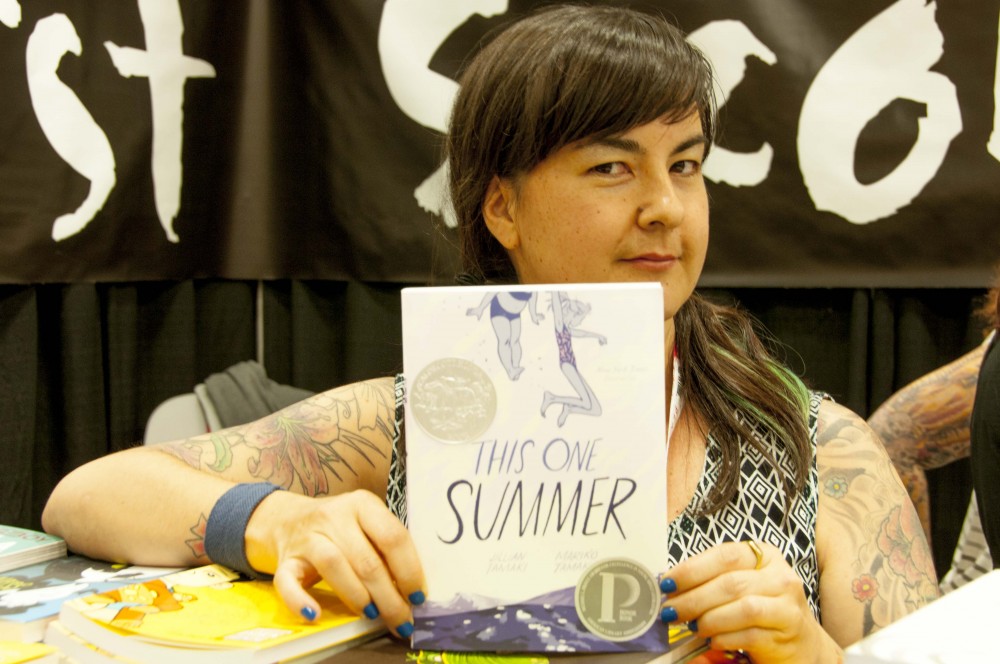
By Nick Eskey
Mariko Tamaki is a Canadian born artist of mixed Japanese and Jewish descent. In school she studied literature and writing, later on publishing the book “Cover Me,” as well as graphic novels “Skim” and “Emiko Superstar.” Her recent work is another graphic novel entitled “This One Summer.” Jillian Tamaki, Mariko’s cousin, did the illustrations for both this novel and for “Skim.”
“This One Summer” gives a glimpse into the life of two young girls as they spend one summer at a cottage by the beach. We get to see them learn and experience new things, as well as see the contrast between lives of adults and kids. During this year’s San Diego Comic-Con, I got to sit down and talk about this book with writer Mariko Tamaki. Unfortunately, Jillian could not attend.
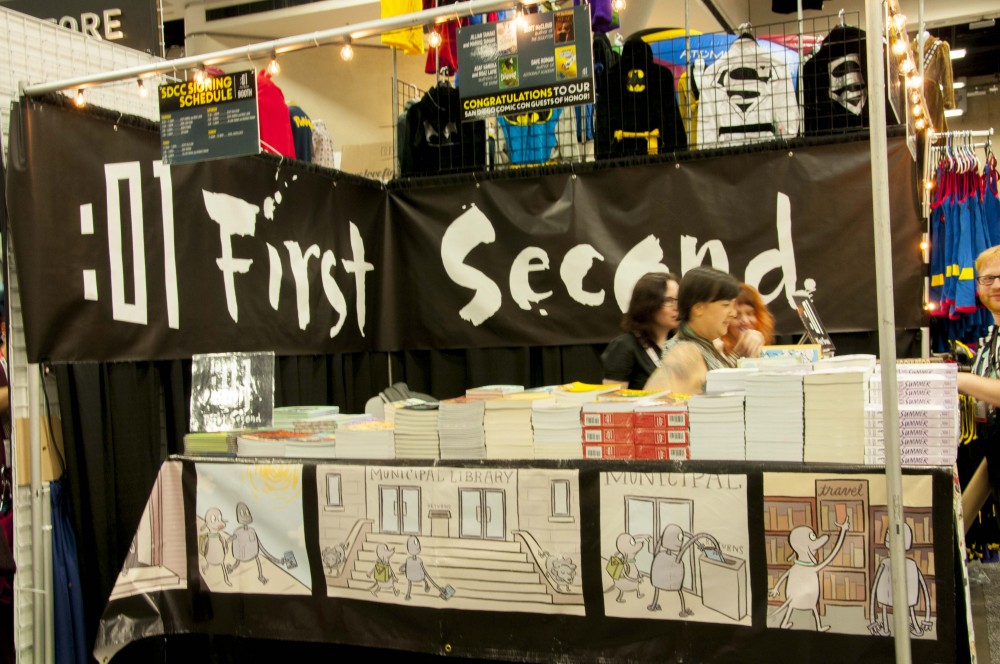
How long have you been doing comics?
The first comic I did was with Jillian. It was a mini-comic called “Skim.” I believe it was the early summer of 2008 I did the first mini-comic for a literary magazine in Canada called “Kiss Machine.” So… this woman, Emily Pulari, commissioned these mini-comics from women who never really had a lot of experience with comics. So we did a mini-comic through that. It’s kind of like a “test case.” Kind of like a low pressure to try something out. So we did the mini-comic of “Skim,” and that got purchased by “Groundwood Books.” And that was our first graphic novel together. That was my first work in comics.
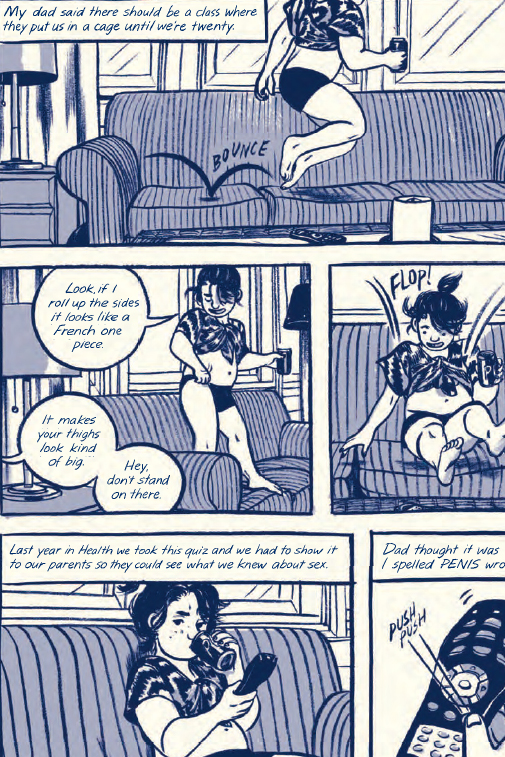
I had no aspirations to work in comics. But I always really liked working on collaborations. I’ve actually done a lot of theatre, and I’ve done a lot of performance art, which for me was like a more accessible version of theatre. So I’ve done a lot of actors work, and a lot of work in sort of feminist collectives and stuff. I was really into the idea of working with another artist than I was in comics per say. But I would say now that I’ve done comics, I think that they’re just an incredible medium for telling stories. The way that stories get told in my experience in comics is that it opens opportunities to tell [them] in so many different angles.
What were some of your ideas for writing this story?
I grew up in Northern Ontario, Canada. And every summer, you went to the cottage. So it was this like solid, integral part of my childhood… When it comes to comics, especially with this one, I thought of the atmosphere. I felt the background would be a good setting for a story. And I’m also kind of obsessed with transitional moments. So for me, the idea of being these young girls, and having this chunk of their lives, and analyzing that part, and all the sort of changes that would happen, even if [those changes] were all going to be during this one summer of their lives… it was something I wanted to show.
Would you say this mirrors any of your life?
Well I use to go to the cottage, but I didn’t have any of those challenges. I used some things as a beginning point, and created something fictional from that. Obviously I was a young girl at the cottage, and I had the fat young friend there too, but the characters are not really that connected to my life. The experiences that they have are not my experiences, aside from the fact that I also did go to Saint Joseph in Huron, which is the park that they go to in the book. Actually, Jillian and I as part of our research (that’s what we call it, “research”), went to Saint Joseph in Huron, went to the cottage, and spent a week in Nova Scotia which is I think one of the best places to write a book.
I think the dialogue is very down to Earth, and very easy to relate to. Is there anything that was hard for you to talk about?
During the initial draft, it was sort of a struggle to write the character of the mother because it’s hard to write somebody who’s not talking about what’s bothering them. And I think that’s so much of what Jillian brought to that character in terms of the details. Even the t-shirts that the mom wears have all these details that kind of build up that character. And we sort of went back and re-edited [her] a lot, because who wants to read about this upset mom who’s just having a bad day? I think that’s like the archetype of the “pissed-off-mom” from like ancient times on. And we wanted to see the layers of that experience. That was a really challenging thing to write, and it ended up being one of the more intriguing stuff. For whatever reason, the writing for Wendy and Rose was for me kind of easy. Their banter was just fun and easy, and it’s hard to write for someone that’s just not pleasant… it’s hard to lovingly write that.
The kids seemed to be able to live in the moment, where the older characters were concerned with other things. How was it to show that dynamic of the two?
My archetype for stuff like that has always been the “Roseanne” show. It’s about the kids, and it’s about the adults. And the problems of the kids are not entirely linked to the adults, but their completely meshed. It’s like you have these people in this microcosm and their like push-pull on each other, where they’re struggling with the same struggles. So for me, I think it’s that kind of step forward from “Skim” to this book. That challenge of really creating a story that’s not just about the kids in this little bubble; to see these layered connections between the kids in the town, these kids in their respective homes, and all other different relationships. To me some of the most interesting scenes are the ones were something of the adults reverberate to the kids; their parents get into a fight, and that trickles down from the parents and then to the kid. And I think that sort of chain reaction is a super interesting one… It’s great to see someone on an adventure, fighting for their family or what have you, but at the same time most of our reality as teenagers is connected to our parents.
It really is interesting seeing these kids’ “bubbles” being formed and shaped by their parents.
It’s like a book about trying to be an adult, just as much for the adults as it is for the kids. These parents are trying to be adults, they’re trying to do the right thing. These teenagers are trying to be adults. And it’s all these varying groups of people that have this notion of what it means to be a grownup, and that depressing challenge of it being out of your reach.
Have you found yourself open to other avenues because of your exposure to graphic novels?
I ended up doing this short film called “Happy Sixteenth Birthday Kevin,” which is a movie about a sixteen year old Goth boy, but the cast is like me and my 30 year old friends. So I did that, because comics showed me how much I love dialogue, and I try to incorporate that as much as I can in the work that I’m doing.
“This One Summer” is available now. You can buy it online, or at your local book store.


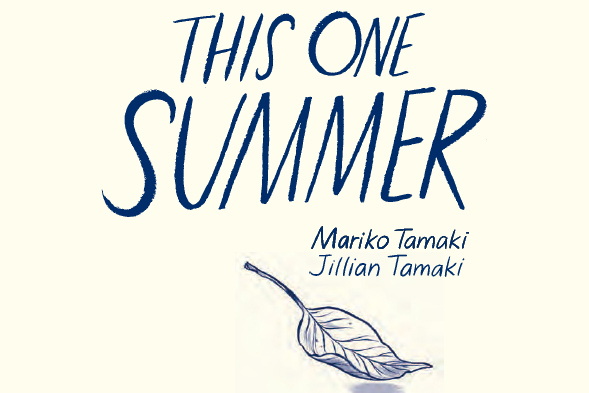
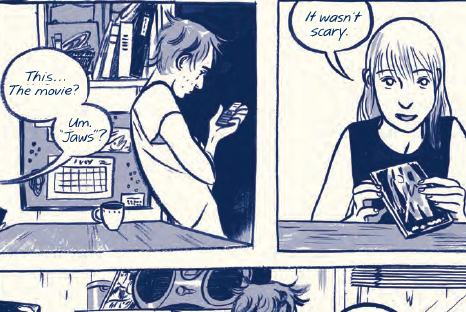
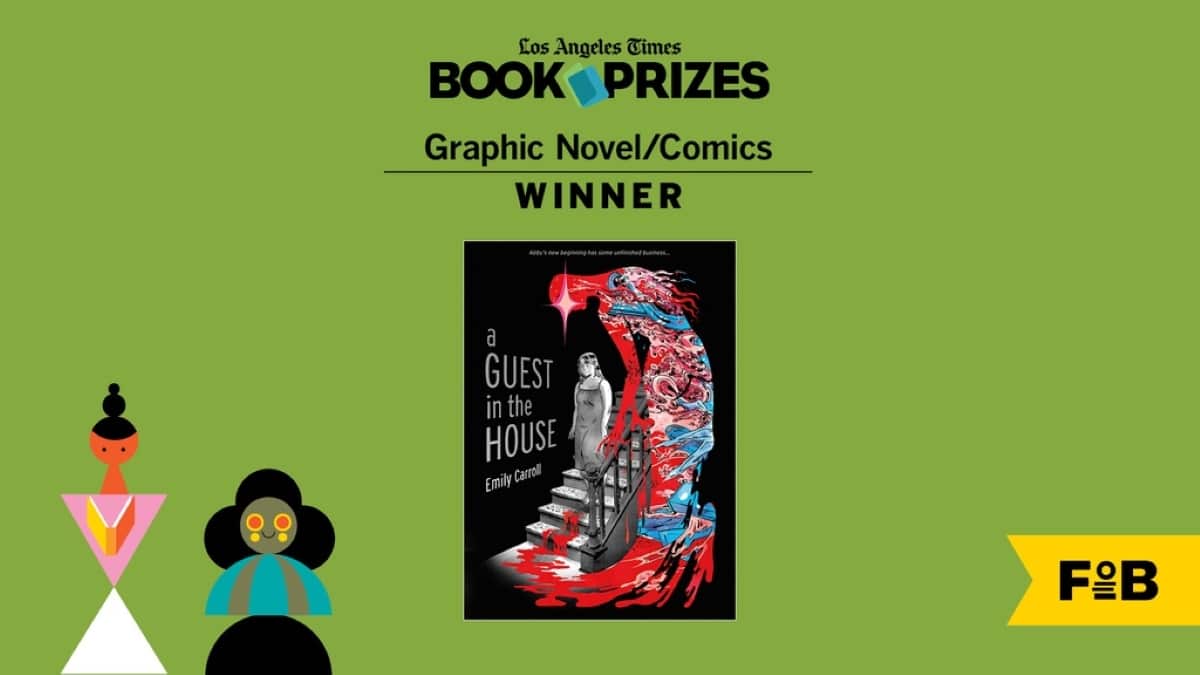
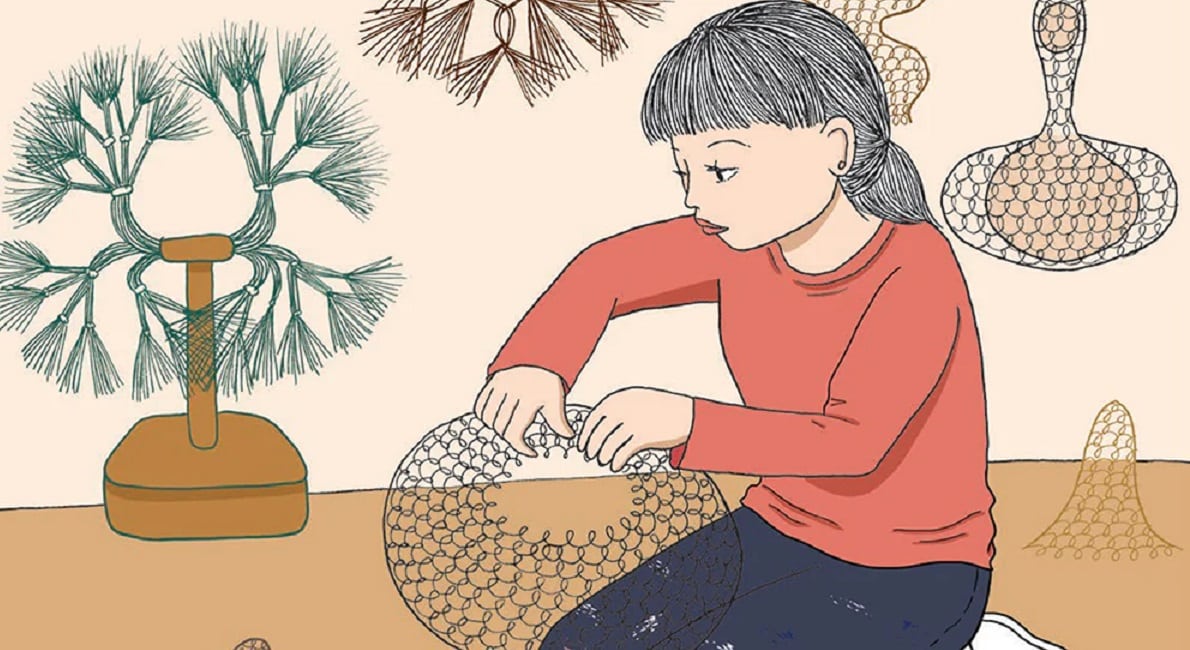
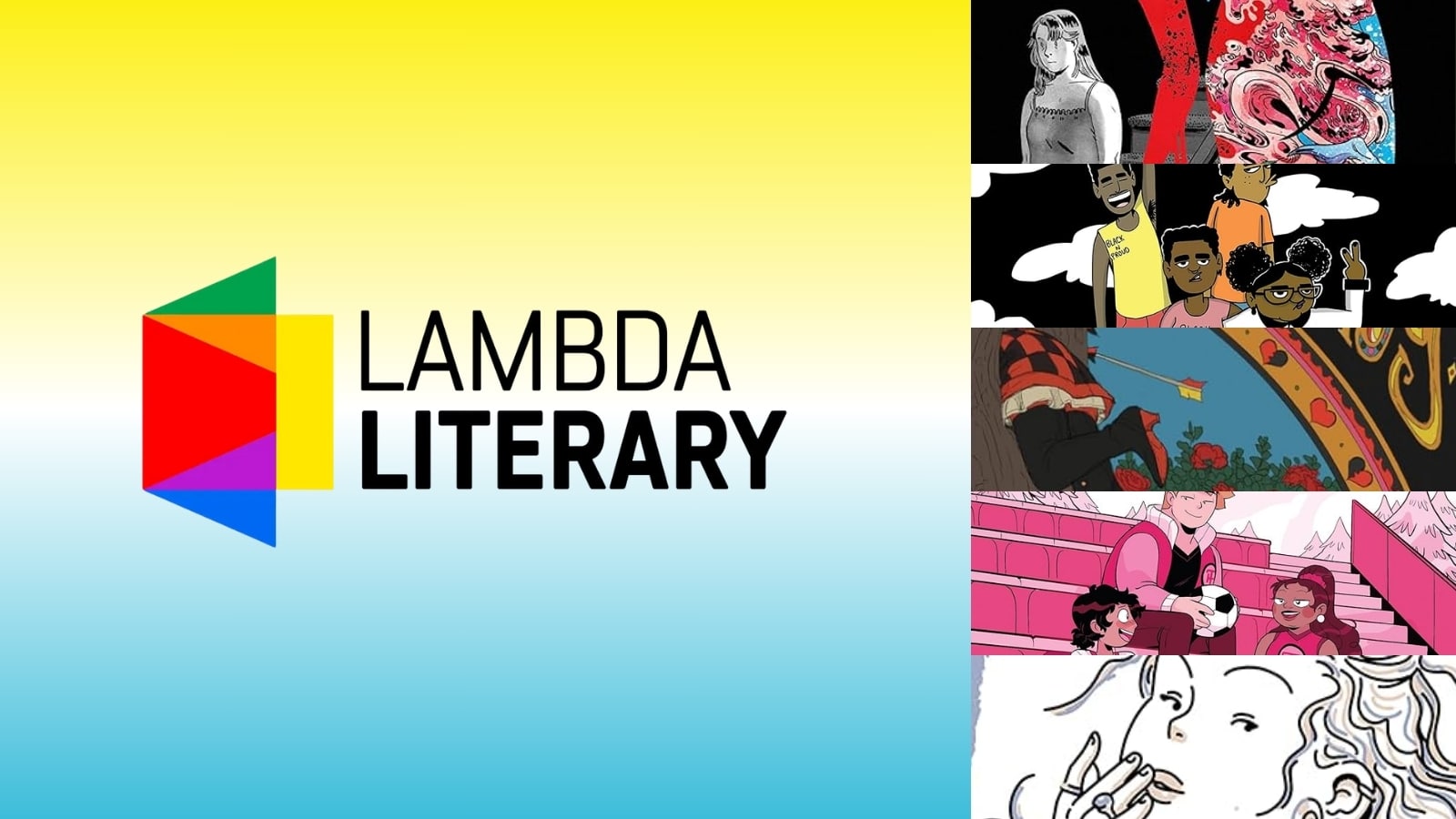



‘This One Summer’ is my favorite graphic novel of the year. It is perfect in every way, and I can’t wait to read whatever Jillian and Mariko create next.
Comments are closed.